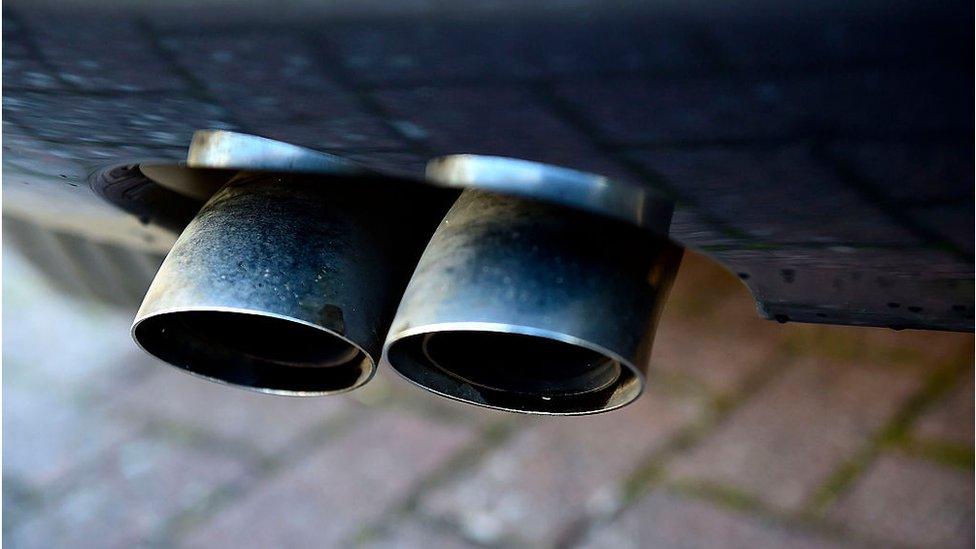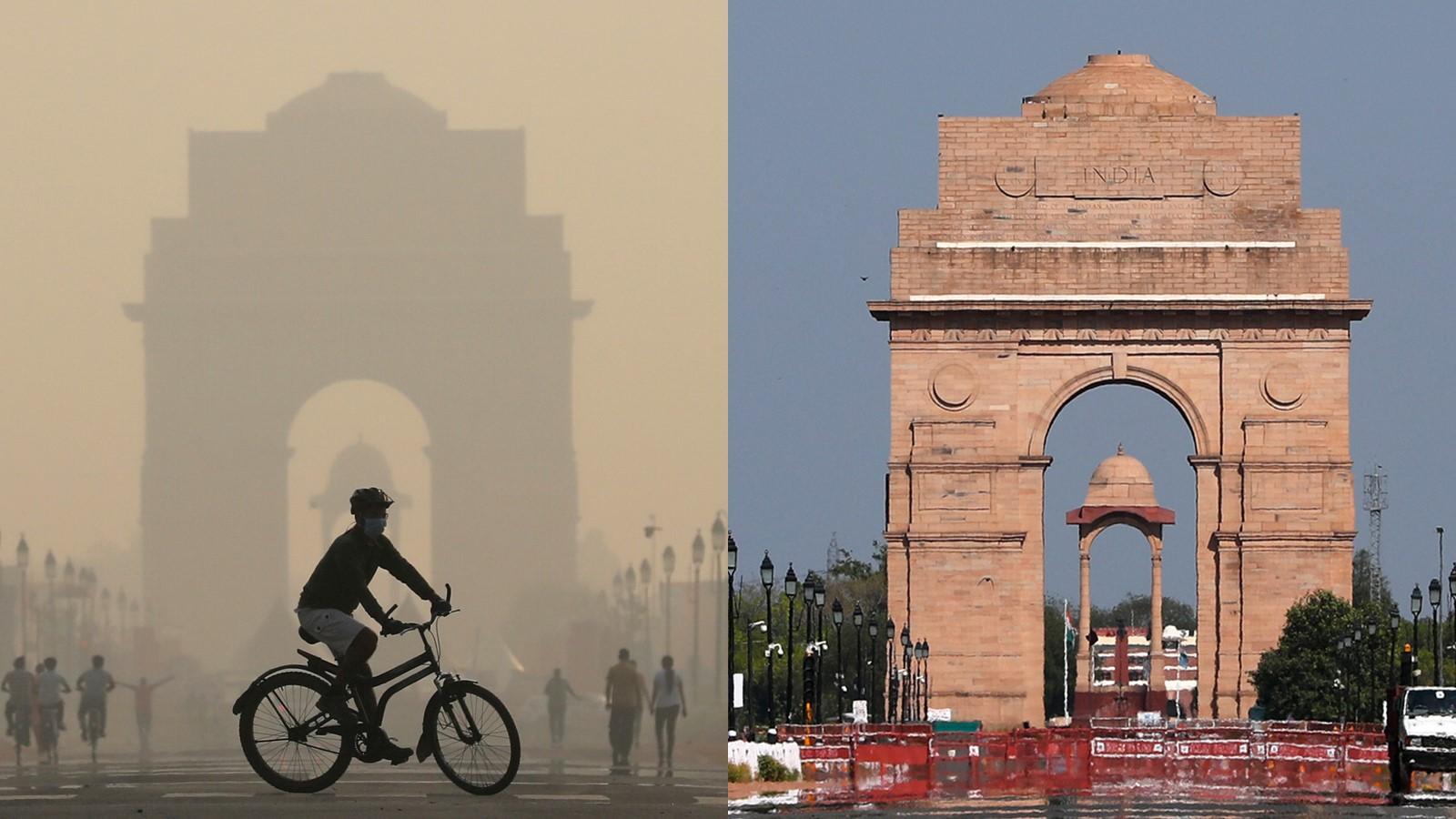German carmakers fined over emissions 'cartel'
- Published

VW group and BMW have been fined €875m (£752m) by the European Commission for colluding to curb the use of emissions cleaning technology.
Daimler, which was part of the talks but blew the whistle on them, escaped without a fine.
The companies had agreed not to implement more than basic EU standards, the Commission said.
However, VW said that the contents of the discussions were not implemented, and that customers were not harmed.
The carmaker said it was considering appealing against the decision.
This type of fine is a first for the European Commission, which normally imposes competition penalties for price fixing and market sharing, rather than technical cooperation.
The Commission said BMW, Daimler and three VW group brands - Audi, Porsche, and VW - had "illegally colluded to restrict competition" in diesel emissions cleaning.
Specifically, it said the firms had regular meetings for five years on how to reduce emissions of nitrogen oxide, an exhaust gas harmful to people and the environment.
The firms developed 'AdBlue', a liquid additive to turn nitrogen oxide into harmless water and nitrogen.
However, while the carmakers knew that injecting more AdBlue into streams of exhaust gas could lead to more effective cleaning, they indicated to each other that none of them would aim above the minimum legal standards, the Commission said.
They agreed on sizes of AdBlue tanks and ranges, and exchanged sensitive information on planned tank sizes and AdBlue consumption in future models, it added.
"In today's world, polluting less is an important characteristic of any car," the Commission said. "And this cartel aimed at restricting competition on this key parameter."
VW 'may appeal'
VW said the Commission was "imposing fines even though the contents of the talks were never implemented and customers were therefore never harmed."
It said the tank sizes and ranges that were put into cars were two to three times higher than those discussed.
"The Commission is breaking new legal ground with this decision, because it is the first time it has prosecuted technical cooperation as an antitrust violation," a spokesman said.
Instead of a fine it would have been better for the car industry if the European Commission had "issued clear guidelines describing how cooperation in research and development can be structured in a way that complies with antitrust law", VW added.
"The large fines imposed in this case underscore the need for more comprehensive practical guidance from the Commission to ensure that legal uncertainties do not become a stumbling block to innovation in Europe," the carmaker said.
"Volkswagen will carefully review today's decision once served and then decide whether to appeal, if necessary," it added, saying that it has until mid-September to bring any action before the European Court in Luxembourg.
The case is separate to the so-called "dieselgate" emissions-cheating scandal.
BMW said the Commission had cleared it of suspicion of using illegal "defeat devices" to cheat emissions tests.
"This underlines that there has never been any allegation of unlawful manipulation of emission control systems by the BMW Group," BMW said.
Related topics
- Published6 July 2021

- Published1 June 2021
